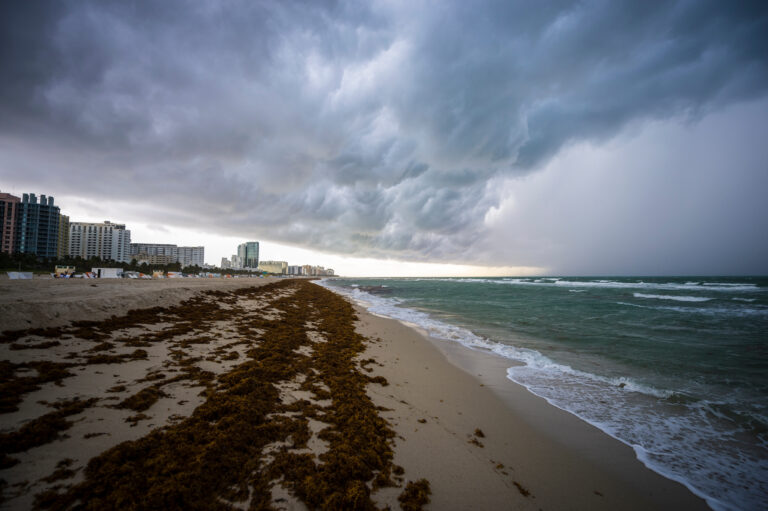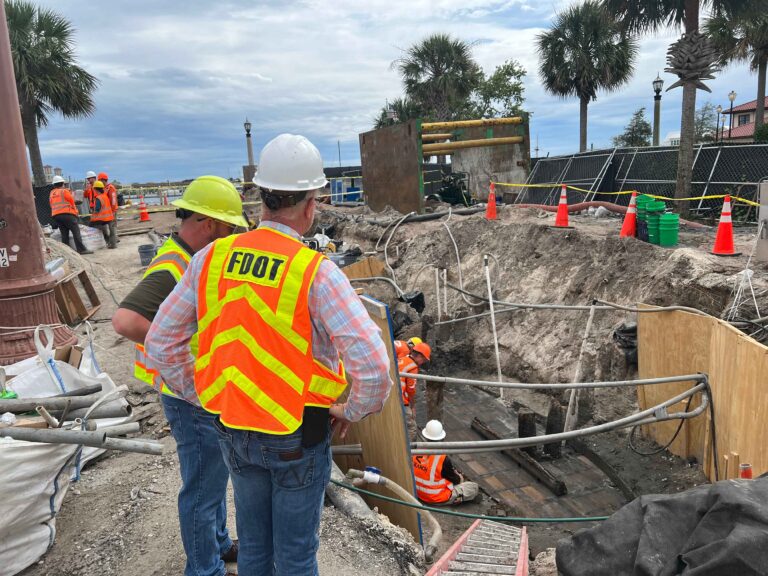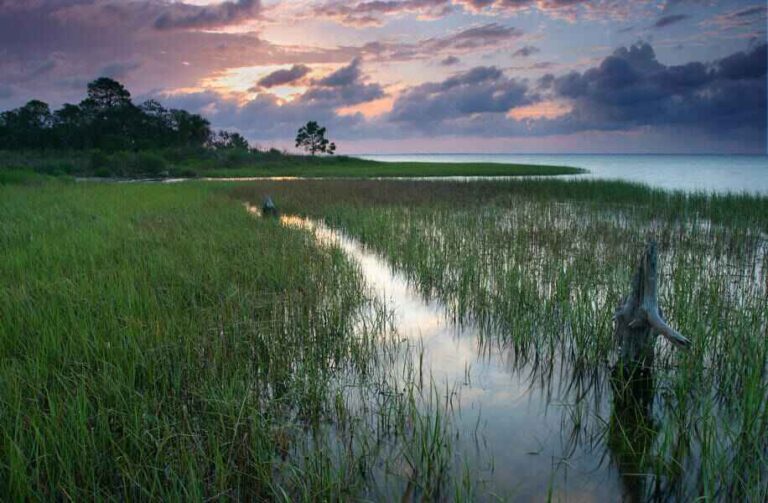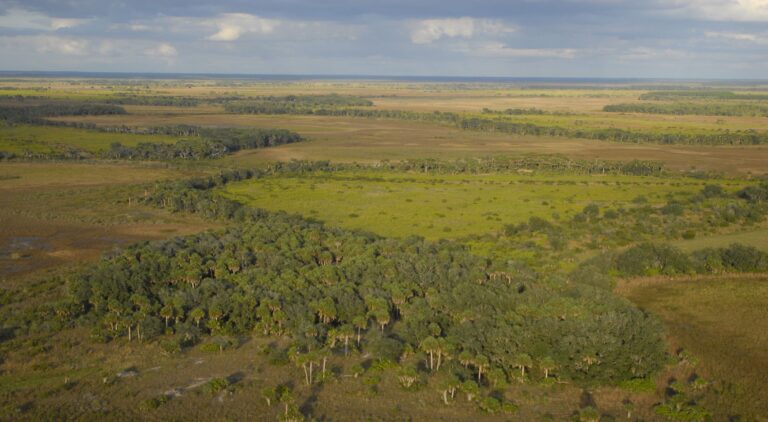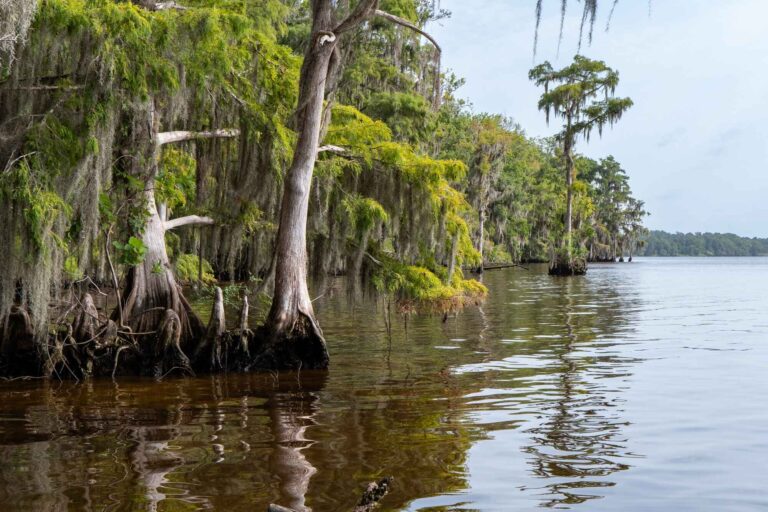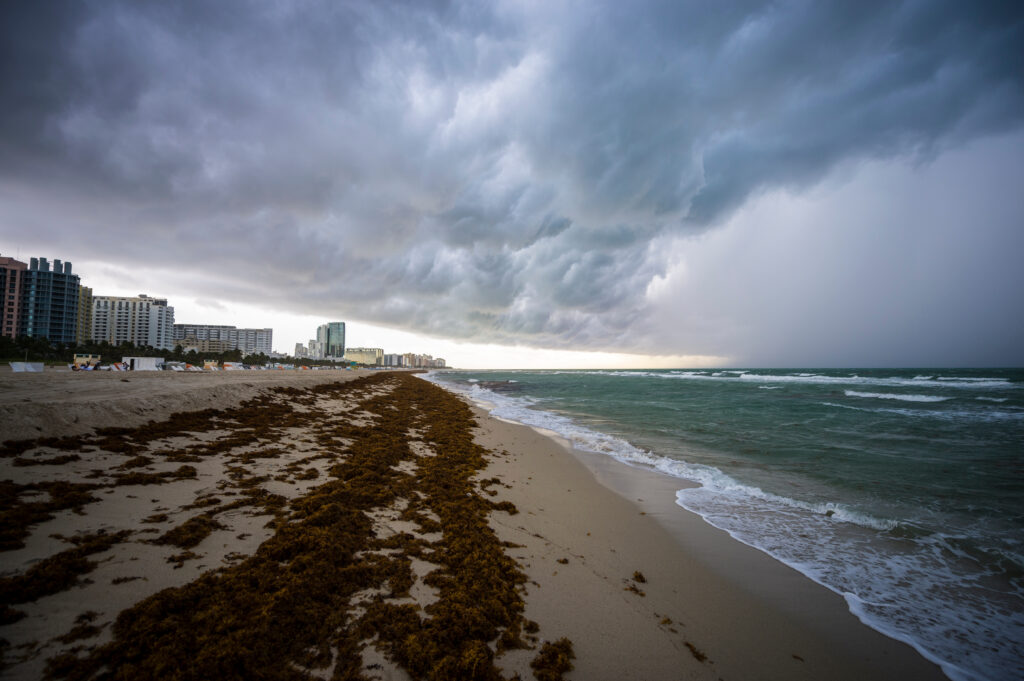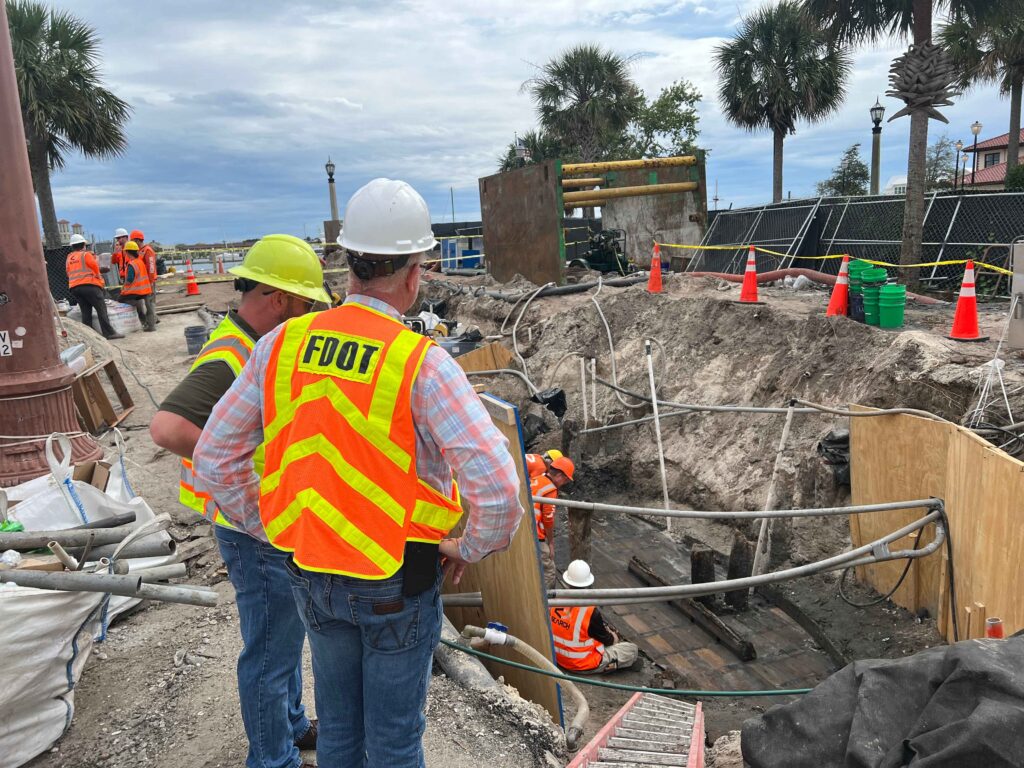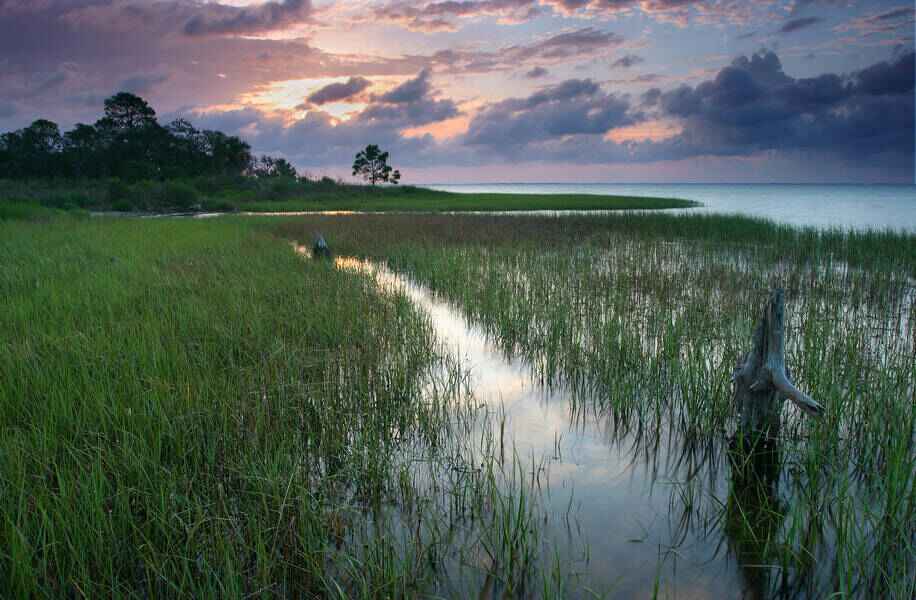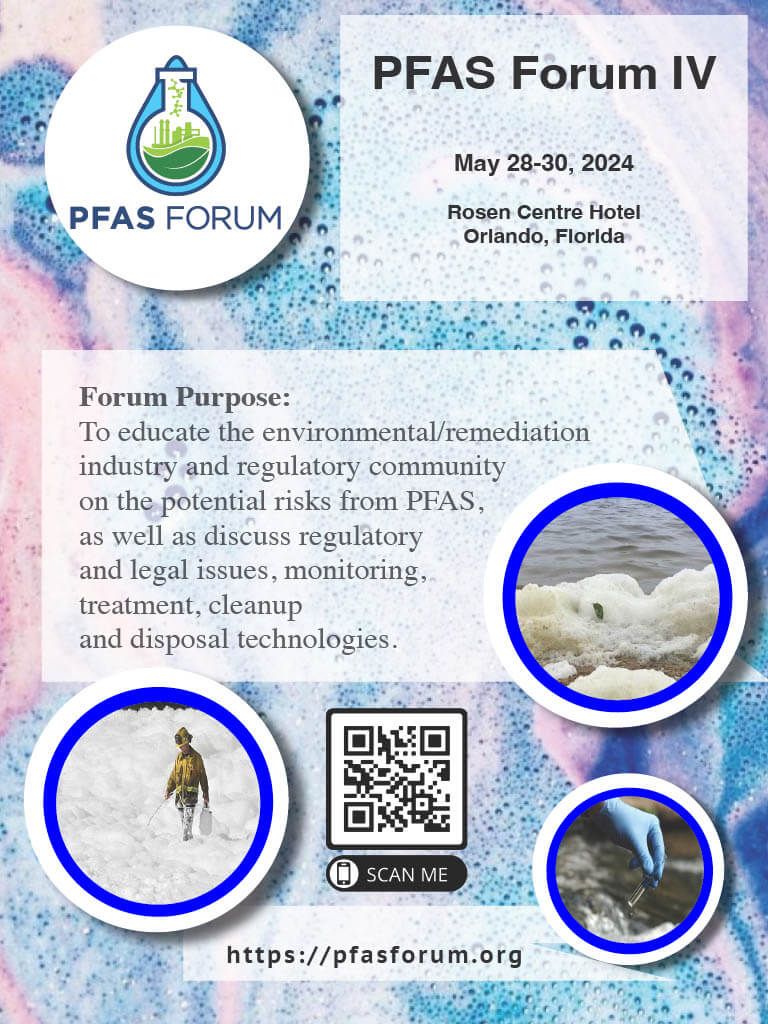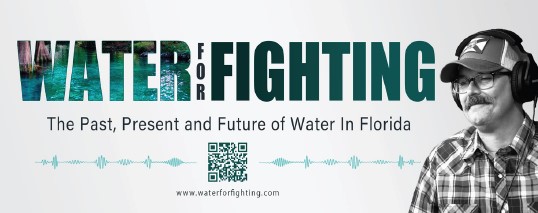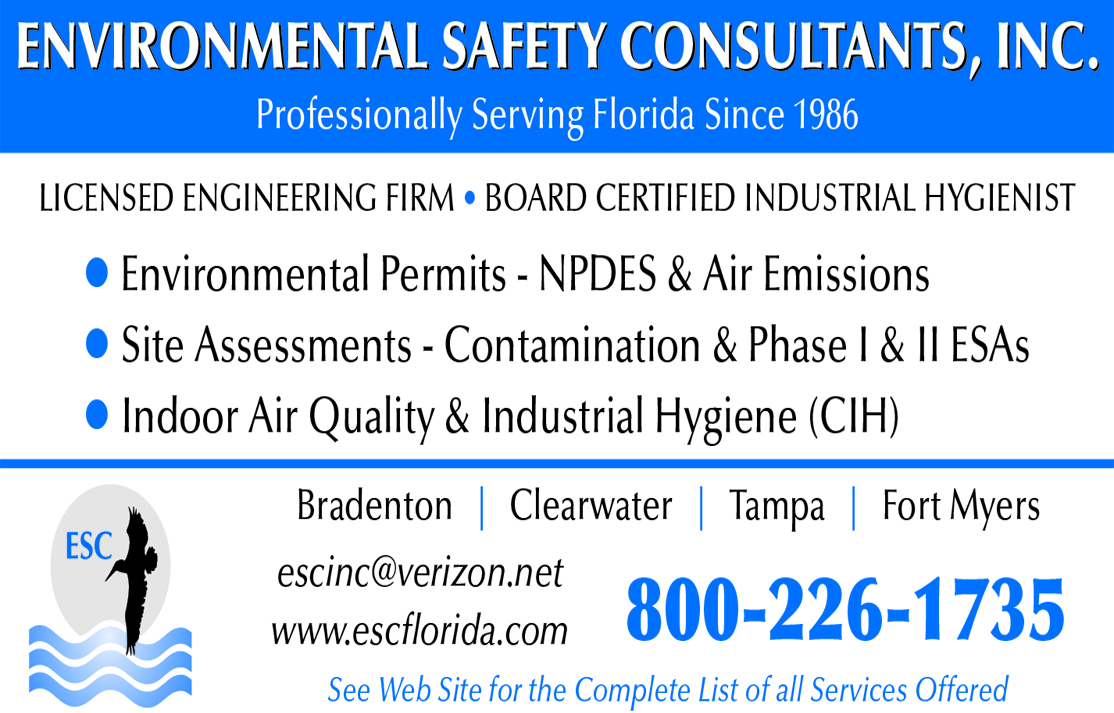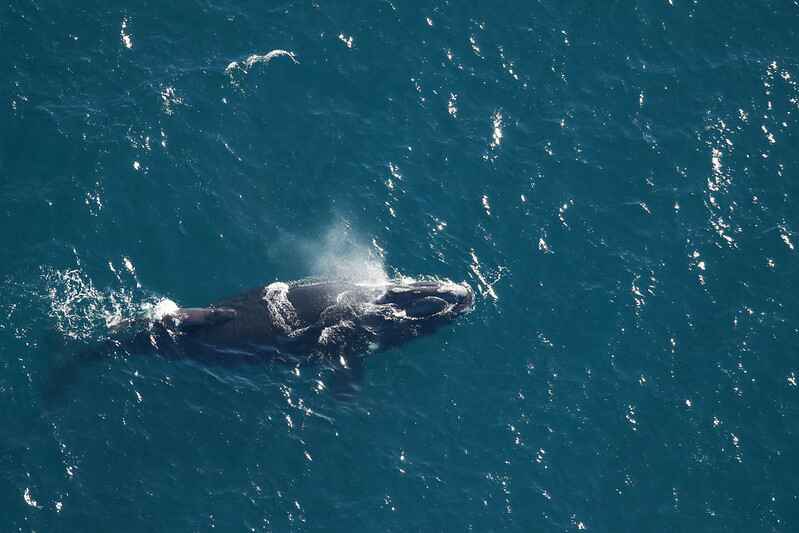
By KELLY RICHMOND
The North Atlantic right whale, one of the most critically endangered whale species in the world, finds sanctuary in the waters off Florida each winter. From November to April, expectant mothers migrate to this region to give birth, making Florida’s coastline a vital calving ground for the survival of this species. With approximately 370 individuals remaining, every new calf born here offers a glimmer of hope in the fight against extinction.
The Florida Fish and Wildlife Conservation Commission (FWC) plays a crucial role in monitoring and protecting these majestic marine mammals. Researchers from FWC track whale sightings, study their behavior, and work to mitigate the numerous threats these animals face. But despite these efforts, the challenges to their survival are significant.
Threats to the North Atlantic Right Whale
The species faces two primary dangers: entanglement in fishing gear and vessel strikes. Fishing lines can wrap around a whale’s body, cutting into its flesh and leading to infections or death. Meanwhile, vessel collisions can severely injure or kill whales, especially calves, which are smaller and less able to avoid fast-moving boats. Cumulative impacts, including underwater noise pollution from ships, disrupt their communication and navigation, further complicating their journey to survival.
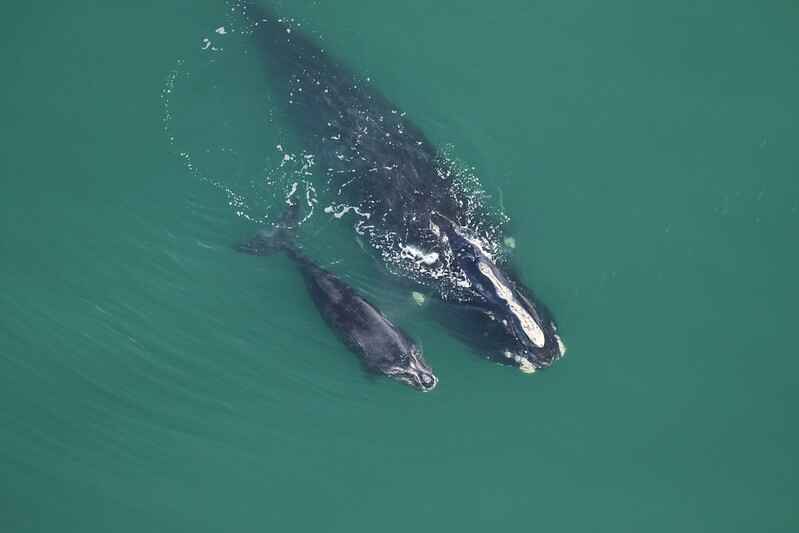
How You Can Help
Protecting the North Atlantic right whale is a shared responsibility, and the public can play a significant role in their conservation.
- Be Whale Aware: Boaters should remain vigilant in areas where right whales are known to be present. Use the Whale Alert app to see if whales have been sighted in your area. Slow down to give yourself time to react and adhere to the 500-yard federal rule that prohibits approaching these whales. Inlets can sometimes be a confluence of vessel traffic and whales, so please take extra effort to stay alert.
- Report Sightings: If you spot a right whale, report it immediately to 1-877-WHALE-HELP (1-877-942-5343). Quick action can help researchers monitor the population and prevent potential hazards.
- Practice Sustainable Fishing: Ensure you are using whale-safe fishing gear and following local regulations to reduce the risk of entanglements. Properly dispose of fishing lines and gear to prevent them from entering the ocean.
- Spread the Word: Educate your friends and family about the importance of Florida’s waters as a right whale calving ground. Sharing information on social media or participating in community events can amplify awareness about this critical conservation issue.
A Call for Compassion and Action
The North Atlantic right whale is more than an emblem of marine biodiversity; it’s a living testament to the interconnectedness of all life. By taking steps to protect these gentle giants, Floridians have the chance to preserve an irreplaceable part of our natural heritage. Together, we can ensure that these waters remain a safe haven for future generations of right whales.
For more information on how you can help, visit FWC’s website, for right whale calving season updates follow @FWCResearch on Facebook and Instagram.
Kelly Richmond is Public Information Coordinator for FWC’s Fish and Wildlife Research Institute


